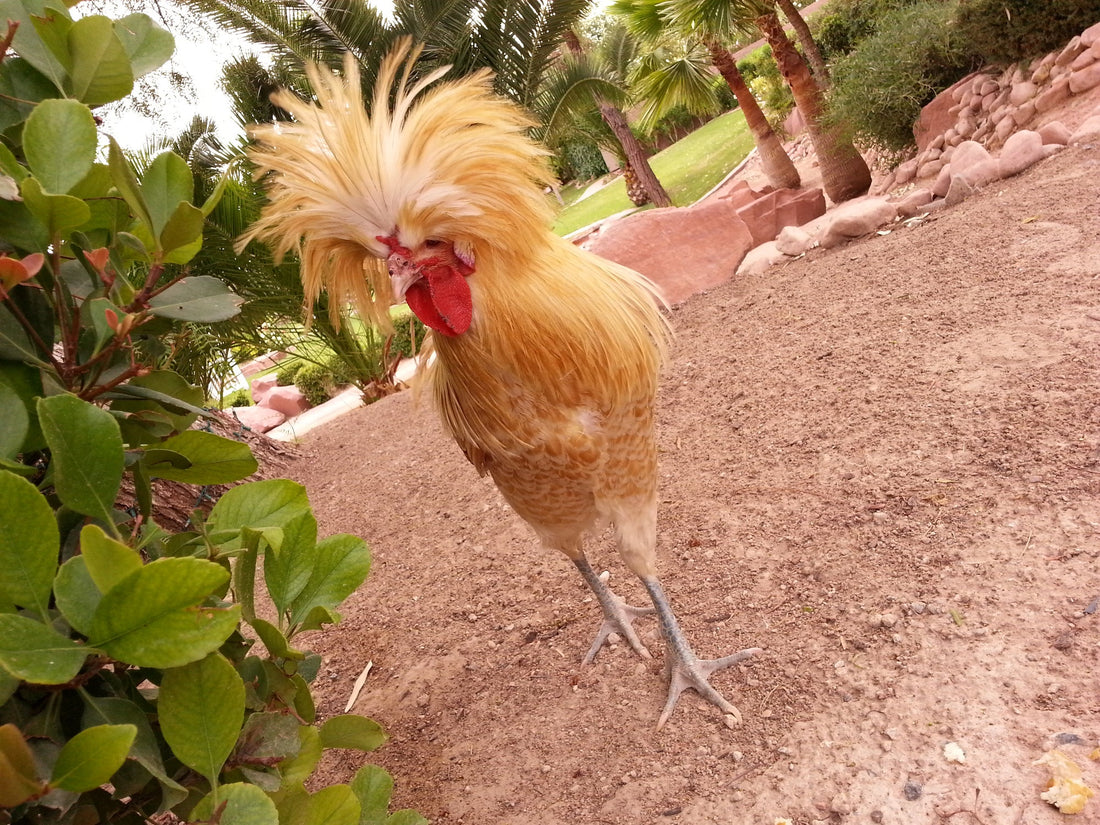Chickens, often underestimated creatures, possess a surprising depth of emotional intelligence. This exploration goes beyond their usual clucking to reveal the complex emotional landscape of these fascinating birds. From social bonds to problem-solving capabilities, chickens demonstrate that there's much more to them than meets the eye. This post delves into the intricacies of their emotional world, offering a new perspective on backyard poultry and their place in our lives and hearts.
The Social Network: Understanding Chicken Hierarchies
Chickens are inherently social creatures, thriving in communities with established hierarchies known as the "pecking order." This structure is not just about dominance; it's a complex system of social interactions that facilitates harmony and cooperation within the flock. Chickens recognize individual members, form friendships, and even show preferences for certain companions. These relationships are crucial for their social well-being, demonstrating a level of emotional intelligence that enables them to navigate and maintain social bonds effectively.
Emotional Expressions: More Than Just Noise
The vocalizations of chickens are often dismissed as mere noise, but they are, in fact, intricate communication methods expressing a wide range of emotions, from alarm to contentment. Chickens use specific sounds to warn of danger, call their chicks, or even express pleasure. By paying attention to these vocal cues, it becomes apparent that chickens communicate their feelings and intentions, showcasing their capability for emotional expression.
Empathy Among the Flock: Feeling Together
Recent studies have shown that chickens are capable of empathy, the ability to share and understand the emotions of another. For instance, hens exhibit signs of distress when their chicks are in distress, indicating a deep emotional connection between mother and offspring. This capacity for empathy extends beyond the mother-chick relationship, as chickens can respond to the emotional cues of their flock mates, demonstrating a collective emotional intelligence that strengthens their social bonds.
Memory and Recognition: A Sign of Emotional Depth
Chickens have demonstrated remarkable memory and recognition abilities, not only distinguishing between different humans but also remembering past experiences. This ability to form memories is a cornerstone of emotional intelligence, allowing chickens to adjust their behavior based on previous interactions. It shows that their emotional responses are not just instinctual reactions but are influenced by their individual experiences and relationships.
The Language of Feathers: Reading Chicken Emotions
Observing a chicken's body language, especially feather positioning and movement, can provide insights into their emotional state. For example, a relaxed, content chicken often has a smooth feather appearance, while a frightened or agitated chicken may puff up its feathers. Understanding these subtle cues enables us to better respond to our chickens' needs and emotions, fostering a more empathetic and supportive environment for them.
Problem Solving and Curiosity: Signs of Intelligent Emotion
Chickens exhibit problem-solving abilities and curiosity, traits often associated with higher levels of cognitive and emotional intelligence. They can navigate mazes, solve puzzles to access food, and exhibit a natural curiosity about their environment. This capacity for learning and exploration not only highlights their intelligence but also suggests an emotional depth, as they seek stimulation and engagement with their surroundings.
Coping with Stress: Emotional Regulation in Chickens
Chickens, like humans, experience stress and have ways of coping with it. Their ability to seek comfort from flock mates or engage in behaviors such as dust bathing for stress relief shows an understanding of self-care. Recognizing when chickens are stressed and providing support or alleviating the source of stress further underlines the importance of understanding and respecting their emotional intelligence.
The Impact of Environment on Emotional Well-being
The environment in which chickens live greatly affects their emotional well-being. A safe, enriching, and comfortable habitat allows chickens to express natural behaviors, reducing stress and promoting happiness. Conversely, a poor environment can lead to negative emotions and behaviors, highlighting the link between physical space and emotional health. By designing thoughtful living spaces, we acknowledge and cater to the emotional needs of our backyard poultry.
Building Bonds: The Human-Chicken Relationship
The relationship between chickens and their human caretakers is a testament to their emotional intelligence. Chickens can form strong bonds with humans, responding to affection, recognizing individual people, and even showing preferences. These interactions not only enrich the lives of the chickens but also provide joy and companionship to humans, demonstrating the mutual benefits of understanding and respecting the emotional capabilities of chickens.
By acknowledging the emotional intelligence of chickens, we gain a deeper appreciation for these remarkable creatures. Far from being simple backyard poultry, chickens are complex beings with emotions, social bonds, and cognitive abilities that deserve recognition and respect. Understanding and catering to their emotional needs can enhance their well-being and deepen the connection we share with our feathered friends.

